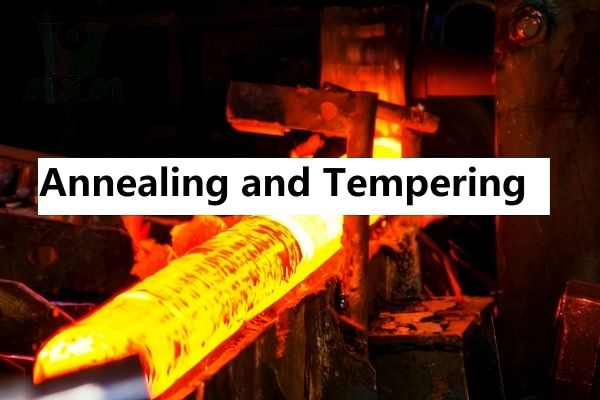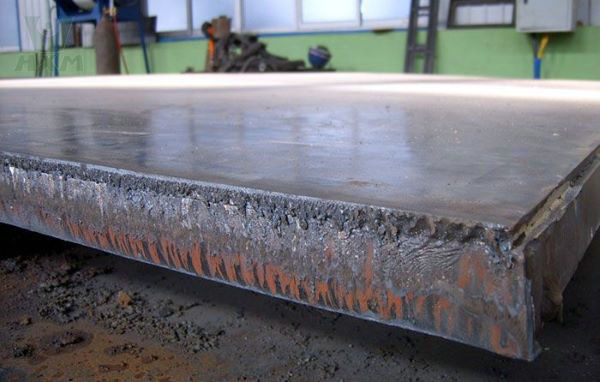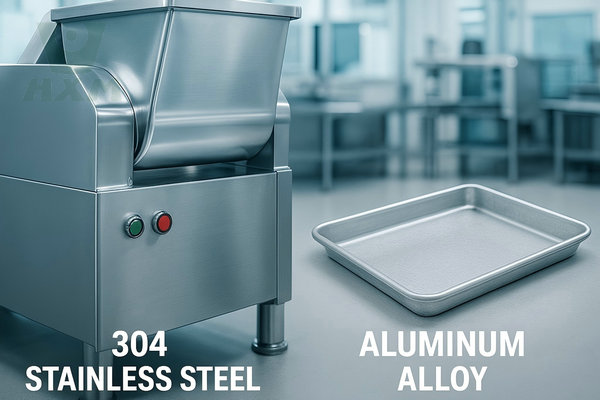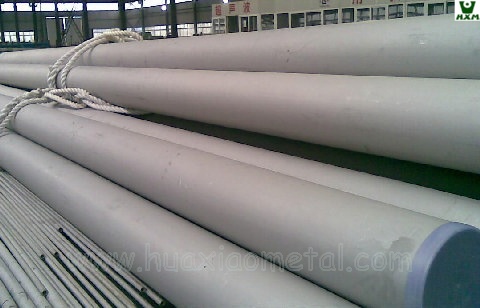
As a commonly used structural steel, Q235 steel is widely used in various industries. This article will discuss in detail what is Q235 steel, why choose Q235 carbon steel and analyze its advantages. Whether you are a steel supplier, an architect, or an engineer, understanding the definition and characteristics of Q235 steel is essential for the correct selection of materials.
As a cornerstone of the manufacturing and construction industries, Q235 steel is one of the most widely used plain carbon structural steels in the world. Its popularity stems from an excellent balance of strength, ductility, weldability, and, most importantly, cost-effectiveness. But what exactly is Q235 steel, and what makes it suitable for such a vast range of applications?
The name itself provides a clue: “Q” represents the yield point (Qu Dian in Chinese), and “235” indicates the minimum yield strength of 235 MPa (megapascals).
This comprehensive guide delves into the essential details of Q235 steel, covering its properties, different grades, international equivalents, and common applications.
What is Q235 Steel?
Q235 steel is a common carbon structural steel, which is widely used in various industries and fields. Its chemical composition includes carbon, silicon, manganese, phosphorus and sulfur. Q235 steel has attracted much attention in the market due to its unique characteristics.
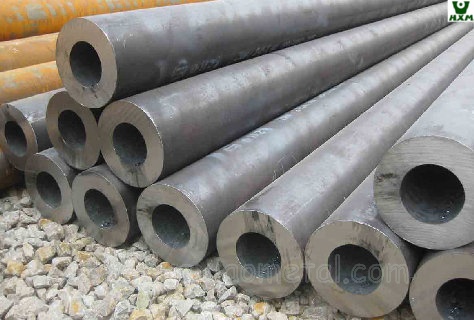
Grades of Q235 Steel: A, B, C, D Explained
Q235 steel is divided into four quality grades: Q235A, Q235B, Q235C, and Q235D. The primary distinction between them is the Charpy impact test temperature.
Q235A: This grade does not require an impact test. It is suitable for general structures with no dynamic loading requirements.
Q235B: The most common grade. Requires an impact test at +20°C. Widely used in a variety of standard construction and manufacturing applications.
Q235C: Requires an impact test at 0°C. Chosen for applications in colder regions or for structures that may experience some dynamic loading.
Q235D: Requires an impact test at -20°C. Specified for cold-weather environments and critical structural components where toughness is a primary concern.
Not sure which grade is right for your project’s climate or application? Our expert team can help you select the most suitable and cost-effective option.
Chemical Composition of Q235 Steel
The performance of Q235 steel is dictated by its chemical makeup. While primarily iron, it contains specific amounts of other elements that influence its mechanical properties.
| Element | Q235A (%) | Q235B (%) | Q235C (%) | Q235D (%) |
| Carbon (C) | ≤ 0.22 | ≤ 0.20 | ≤ 0.17 | ≤ 0.17 |
| Silicon (Si) | ≤ 0.35 | ≤ 0.35 | ≤ 0.35 | ≤ 0.35 |
| Manganese (Mn) | ≤ 1.40 | ≤ 1.40 | ≤ 1.40 | ≤ 1.40 |
| Phosphorus (P) | ≤ 0.045 | ≤ 0.045 | ≤ 0.040 | ≤ 0.035 |
| Sulfur (S) | ≤ 0.050 | ≤ 0.045 | ≤ 0.040 | ≤ 0.035 |
Key Takeaways:
Carbon (C): As the primary hardening agent, carbon content directly impacts the steel’s strength and ductility. Q235’s low carbon content is key to its excellent formability and weldability.
Manganese (Mn): Enhances the steel’s overall strength and resistance to wear.
Phosphorus (P) and Sulfur (S): These are generally considered impurities. Lower levels of P and S, as seen in grades C and D, improve the steel’s toughness, especially at low temperatures.
Q235 Physical Properties
| Performance | Value |
|---|---|
| Density | 7.85 g/cm³ |
| Melting Point | 1420-1460°C |
| Thermal Conductivity | 51.9 W/(m·K) |
| Coefficient of Linear Expansion (20°C) | 11.7 µm/m·K |
Q235 Mechanical Properties
| Performance | Value |
|---|---|
| Yield Strength (σy) | ≥ 235 MPa |
| Tensile Strength (σb) | 375-500 MPa |
| Elongation (δ) | ≥ 26% |
| Impact Toughness (J) | ≥ 27 J |
| Hardness (HB) | ≤ 201(for cone hardness tester) |
Equivalent Grades of Q235 Steel
For international projects, it’s essential to know the common equivalents of Q235 steel under different standards. This ensures material compliance and simplifies procurement.
| Standard | Equivalent Grade |
| China (GB/T 700) | Q235B |
| USA (ASTM) | A36 |
| Europe (EN 10025) | S235JR |
| Japan (JIS G3101) | SS400 |
| Germany (DIN 17100) | St37-2 |
Disclaimer: While these grades are considered broadly interchangeable for many applications, slight variations in chemical and mechanical properties may exist. Always consult the specific material standards for critical applications.
While Q235B, A36, and S235JR are often used interchangeably, there are subtle differences. All three have very similar yield and tensile strengths, making them suitable for the same types of structural applications. The main variations lie in their specified chemical compositions and local regulatory approvals. For most general-purpose structural projects, they are considered practical equivalents.
If you are working on an international project and need to substitute materials, Huaxiao Metal can help ensure you select the correct, compliant grade.
Applications of Q235 Carbon Steel
As a commonly used carbon structural steel, Q235 steel has a wide range of applications. Its excellent mechanical properties and versatility make Q235 steel one of the preferred materials in manufacturing, construction and engineering. The application of Q235 steel in different fields is expanded as follows:
Construction Sector:
Manufacturing Field:
Engineering Field:
Energy Field:
To sum up, Q235 steel, as a common carbon structural steel, is widely used in the fields of construction, manufacturing, engineering, and energy. Its superior mechanical properties, versatility, and machinability make Q235 steel one of the preferred materials in various industries, providing a reliable material basis for various engineering and manufacturing projects.
Advantages of Q235 steel
As a commonly used structural steel, Q235 steel has significant advantages in many steels. The following are several key advantages of Q235 steel:
Good Plasticity and Weldability.
Plasticity refers to the property that a material can undergo plastic deformation under stress without breaking. Q235 steel has high plasticity and can adapt to various shapes and processing requirements. At the same time, it also has excellent weldability and can achieve reliable connection through various common welding methods, which is convenient for assembly and processing in the manufacturing process.
High Strength and Toughness.
Strength is the ability of a material to resist deformation and failure, while toughness is the property of a material to absorb energy and expand under stress. The high strength and toughness of Q235 steel enable it to withstand heavy loads and impacts, ensuring the stability and safety of the structure. This makes Q235 steel an ideal choice for the manufacture of highly loaded structures and load-bearing equipment.
Good Corrosion Resistance.
Corrosion resistance is the ability of a material to resist corrosion and oxidation. Q235 steel can resist corrosion under various environmental conditions and prolong service life. This makes Q235 steel widely used in outdoor construction, marine engineering and chemical equipment, and other fields.
High Cost-Effectiveness.
Due to its wide application and market demand, the production and supply of Q235 steel are relatively stable, and the price is relatively low. This makes Q235 steel an affordable choice in various industries, capable of reducing manufacturing costs and increasing competitiveness.
To sum up, the advantages of Q235 steel, such as plasticity, weldability, strength, toughness, and corrosion resistance, make it the material of choice for many industries and fields. Whether in construction, manufacturing, or other applications, choosing Q235 steel can meet the design requirements and guarantee the quality and reliability of the product. At the same time, its high cost-effectiveness also provides an economical choice for enterprises.
Weldability and Machinability
One of the greatest advantages of Q235 steel is its excellent workability.
Weldability: Due to its low carbon content, Q235 has exceptional weldability. It can be easily welded using common methods like Shielded Metal Arc Welding (SMAW) and Gas Metal Arc Welding (GMAW) without the need for preheating, making fabrication fast and efficient.
Machinability: The steel is also easy to machine, cut, drill, and form, allowing it to be fabricated into a wide variety of shapes and components.
Why Choose Huaxiao Metal for Your Q235 Steel Needs?
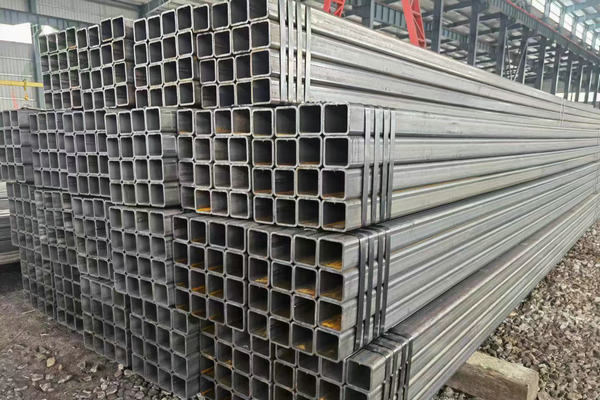
At Huaxiao Metal, we understand that reliable material is the foundation of every great project. We are more than just a supplier; we are your partner in success.
Expertise: Our team possesses deep knowledge of Q235 steel and its various grades and applications.
Quality Assurance: We provide high-quality Q235 steel that strictly adheres to international standards, complete with material test certificates.
Comprehensive Inventory: We stock a wide range of Q235 steel products, including plates, coils, and profiles, ready to meet your project’s demands.
Customer-Centric Service: We are dedicated to providing you with the right material, on time, and at a competitive price.
Contact us today to discuss your Q235 carbon steel requirements and receive a competitive, no-obligation quote from our team.
FAQ
Is Q235 a type of mild steel?
Yes, absolutely. Q235 is a classic example of a mild steel, also known as low-carbon steel. Its low carbon content is what gives it excellent ductility and weldability, making it easy to work with.
Can Q235 steel be hardened?
Generally, Q235 steel is not suitable for hardening through heat treatment processes like quenching. Its low carbon content limits its ability to harden significantly. It is almost always used in its as-supplied, ductile state. For applications requiring higher hardness, a medium-carbon steel (like S45C) or an alloy steel would be a better choice.
Is Q235 steel suitable for galvanizing?
Yes, Q235 is extremely well-suited for hot-dip galvanizing. This process applies a protective zinc coating that provides excellent corrosion resistance. Galvanized Q235 steel is ideal for outdoor applications like guardrails, communication towers, and structural components exposed to the weather.
What is the difference between Q235 and Q345 steel?
The primary difference is yield strength. Q345 steel has a minimum yield strength of 345 MPa, making it significantly stronger than Q235 (235 MPa). Because of its higher strength, Q345 is used for structures that need to bear heavier loads or be lighter for the same strength, such as in heavy machinery, bridges, and large vessels.


